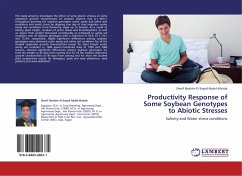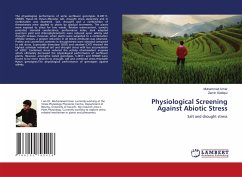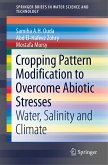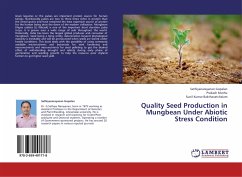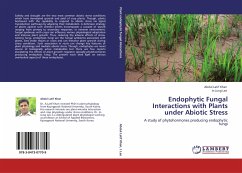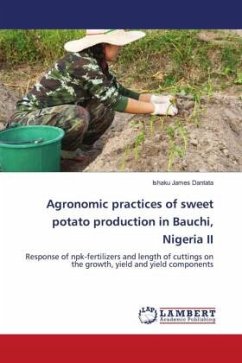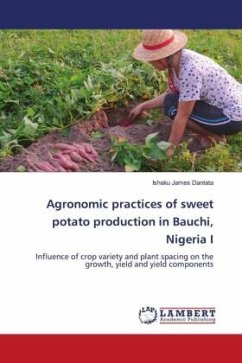Pigeon pea [Cajanus cajan (L.) Millsp.], a member of family Fabaceae is an important legume crop of rainfed agriculture. Faulty irrigation, unpredictable weather conditions, and excess rainfall may lead to water-logged conditions. Being a crop of the rainfed condition, the crop is highly sensitive to waterlogging. The areas, where rainfall is dependent on monsoon are more prone to water logging. Salinity is another limiting factor which imposes serious threats to plant growth. Declining fresh water supply, high evapotranspiration, water table rise, increasing salt load in irrigation water and agricultural malpractices are considered foremost factors that further intensify this problem. The combination of waterlogging, and salinity is much more deleterious than the individual stress and cause greater damage to plants, so having a major impact on agricultural production. In the current study, thirty pigeonpea genotypes were screened for waterlogging and salinity tolerance. The tolerance mechanism was also studied in tolerant genotypes.
Bitte wählen Sie Ihr Anliegen aus.
Rechnungen
Retourenschein anfordern
Bestellstatus
Storno


